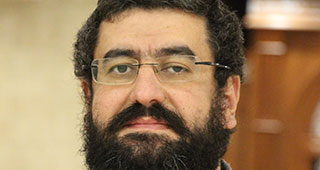- Torah Portion and Tanach
- Shoftim
54
Targum Yonatan applies the prohibition to all of the nation’s leaders because having too many horses causes haughtiness, decreased involvement in Torah, and, ultimately, the need for exile, including to Egypt. Rashi explains that when a king looks to obtain more horses, he sends officials to Egypt, and that is forbidden. The Ramban argues, citing the Yerushalmi, that it is actually permitted to visit Egypt on a commercial mission.
Therefore, the Ramban, like the Rambam, views obtaining too many horses and living in Egypt as independent prohibitions. The Sefer Hachinuch (#499), though, follows Rashi’s approach that avoiding Egypt is the rationale for the prohibition on horses.
In Tzofnat Yeshayahu (pp. 99-101), I humbly proposed another approach. This matter is a lesson in running an independent Jewish state (of which a monarchy is just one form). The defense of the country should be based on an army of reserve soldiers, not a giant standing army. Chariots and cavalry represent a standing army because only a professional army, which trains constantly, can effectively operate such forces. They need to maintain a high level of proficiency and keep in constant connection with the specific horses so that they respond properly in battle.
A standing army has many detriments. It requires a large budget to maintain because an army is not economically productive and its upkeep and equipment is very expensive. To find the money for this purpose raises the issue that the king must not amass gold and silver (ibid. 17). Establishing a large, equipped army also detracts from one’s reliance on Hashem and even belief in Him. Yeshayahu decried this, even in the time of the righteous King Chizkiyahu: "On horses they relied and trusted their chariots and their cavalry, for they were immense, and they did not turn to the Holy One of Israel, and did not seek Hashem" (Yeshayahu 31:1).
Also, developing a close "relationship" with one’s horse likely impinges on the time and interest necessary to raise a normal family as well as to connect to the elders of his community and tribe. We would add that almost every army has an atmosphere that is less than morally inspiring. On the whole, serving in an army is an almost assured recipe for spiritual deterioration, which only choice people can overcome. Even in our days of easier transportation, it is still difficult to serve in the standing army and maintain an ideal family and spiritual life. It is only with a strong spiritual background and strong foundations that one can ensure spiritually successful service in the army.
Therefore, officers in the regular army, including graduates of yeshivot hesder and mechinot k’dam tzvai’ot, deserve our great thanks for the sacrifices they make, in these regards as well. May their sacrifices remain only in the realm of preparedness and may they not be needed to fight in the near future.
As Lovely As A Tree
Rabbi Yaakov Asher Sinclair | Elul 5 5782

Precisely how the Mashiach will come?
beyond the 4 Amot
Baruch Gordon | Elul 6 5779
Appointing a King in Israel (abridged version)
Rabbi Moshe Leib Halberstadt | 3 Elul 5784

Pursuing Two Types of Justice
Rabbi Yossef Carmel | 5771

Pirkei Avot between Pesach and Shavuot
Rabbi Berel Wein | 5769

Should I Limit How Much Tzedakah I Give?
Rabbi Yirmiyohu Kaganoff | Kislev 5768

5. Weddings and Engagements during the Omer Period
Chapter 3: Customs of Mourning during the Omer Period
Rabbi Eliezer Melamed | Tishrei 30 5782

What Is the Significance of the Number 40 in Jewish Tradition?
Rabbi Stewart Weiss | Tevet 4 5782
Daf Yomi Makkot Daf 22
R' Eli Stefansky | 2 Iyar 5785
Daf Yomi Makkot Daf 24
R' Eli Stefansky | 4 Iyar 5785

P'ninat Mishpat: Rental of an Apartment that Was Not Quite Ready – part II
based on ruling 82031 of the Eretz Hemdah-Gazit Rabbinical Courts
Beit Din Eretz Hemda - Gazit | Iyar 5784





